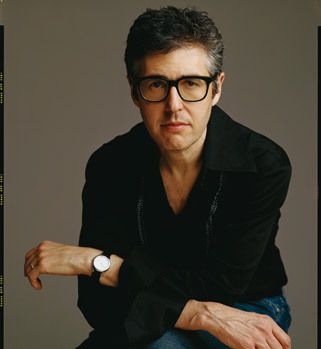The NPR radio series This American Life has served as inspiration for many a recent screenplay (most notably The Informant!), a list which now includes Heretics from Marcus Hinchey (All Good Things). Hinchey's screenplay is based on the 2005 American Life episode of the same name, which centers on "Carlton Pearson, who was a rising star among evangelicals until he was ostracized by his own church and declared a heretic after he started preaching that there is no Hell."
Marc Forster (Quantum of Solace) is co-producing the project under his Apparatus banner, and may eventually direct. Hit the jump for a statement from TAL writer/producer/host Ira Glass and a full synopsis.
Glass, who will co-produce the film with partner Alissa Shipp, remarked,
"This film lets us tell a story about evangelical Christians from their perspective, not from the outside. And at its heart, it's a classic old-fashioned movie plot: a man who stands up for what he believes and loses everything because of it." [Variety]
As much as I love films like Religulous, I always appreciate a cinematic perspective on religion that's balanced, respectful, and interesting. If you can achieve the first two, that last part can be tricky. Hopefully Heretics can make it happen.
Before he can assume directorial duties on Heretics, Forster will follow up Quantum of Solace with the theoretically religion-tinged Machine Gun Preacher, which stars Gerard Butler, Michelle Monaghan, and Michael Shannon.
You can listen to original "Heretics" episode on This American Life's official site. Here's a synopsis:
PROLOGUE. Once he starts preaching his own revelation, Carlton Pearson's church falls apart. After all, when there's no Hell (as the logic goes), you don't really need to believe in Jesus to be saved from it. What follows are the swift departures of his pastors, and an exodus from his congregation—which quickly dwindled to a few hundred people. Donations drop off too, but just as things start looking bleakest, new kinds of people, curious about his change in beliefs, start showing up on Sunday mornings. (23 minutes) Carlton Pearson's church, Higher Dimensions, was once one of the biggest in the city, drawing crowds of 5,000 people every Sunday. But several years ago, scandal engulfed the reverend. He didn't have an affair. He didn't embezzle lots of money. His sin was something that to a lot of people is far worse: He stopped believing in Hell. (2 minutes) ACT ONE. RISE. Reporter Russell Cobb takes us through the remarkable and meteoric rise of Carlton Pearson from a young man to a Pentecostal Bishop: from the moment he first cast the devil out of his 17-year-old girlfriend, to the days when he had a close, personal relationship with Oral Roberts and had appearances on TV and at the White House. Just as Reverend Pearson's career peaked, with more than 5,000 members of his congregation coming every week, he started to think about Hell, wondering if a loving God would really condemn most of the human race to burn and writhe in the fire of Hell for eternity. (30 minutes) ACT TWO. FALL. Once he starts preaching his own revelation, Carlton Pearson's church falls apart. After all, when there's no Hell (as the logic goes), you don't really need to believe in Jesus to be saved from it. What follows are the swift departures of his pastors, and an exodus from his congregation—which quickly dwindled to a few hundred people. Donations drop off too, but just as things start looking bleakest, new kinds of people, curious about his change in beliefs, start showing up on Sunday mornings. (23 minutes)



